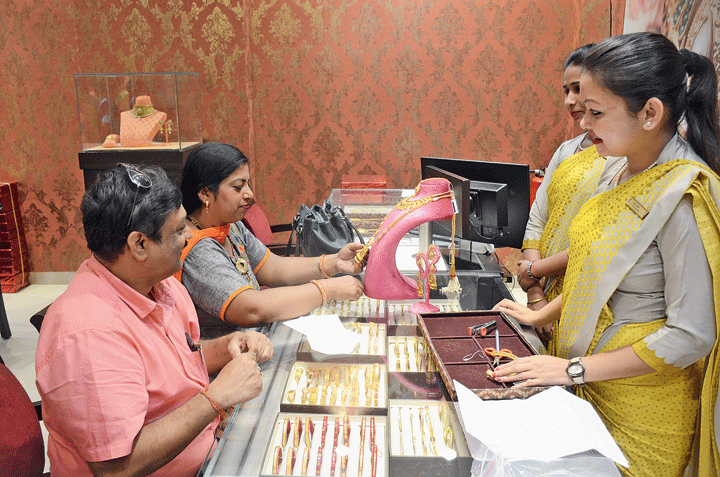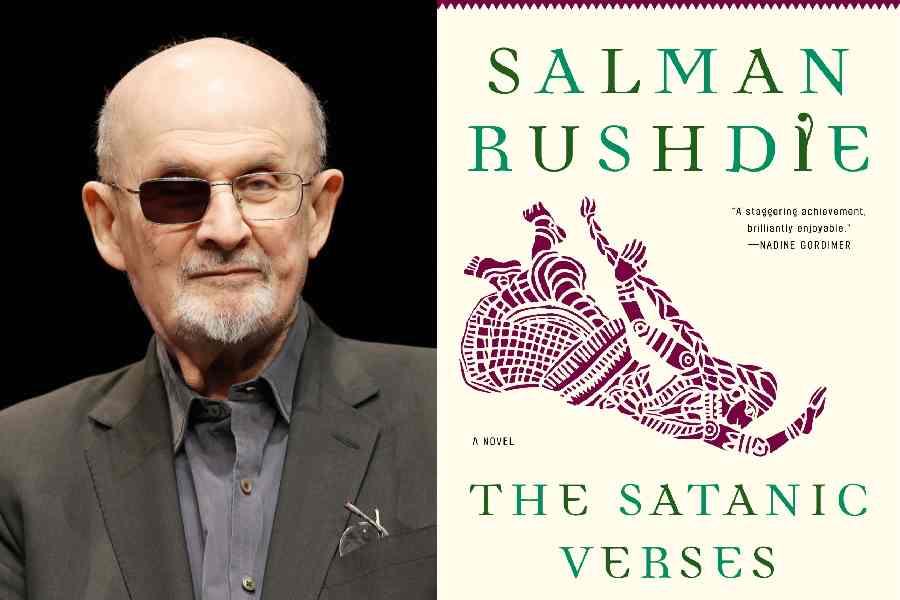This Diwali, the ongoing economic slowdown seems to have cast a long shadow on the retail glow in the capital.
Dhanteras, which is traditionally the splurge time ahead of Diwali in terms of jewellery and automobiles, has not pushed buyers to shell out big money.
Sandeep Banerjee, who runs Tirupati Jewellers at Main Road, said compared to last year business was just half. “There are very few bookings, too few enquiries. We are hoping for sales in light jewellery and small gold coins,” Banerjee said.
Owner of another jewellery store, Gopal Gahna at Harmu, Gopal Soni echoed Banerjee, saying those with deep pockets had not made inquiries or placed big orders. “Dhanteras is on October 25 and so far we have no queries on big orders. This is strange because Dhanteras and Diwali are usually auspicious occasions for buying jewellery and valuables. People also stock up on jewellery this time for winter marriages. But compared to last year, my business is down to 40 per cent,” Soni said.
Owner of Yamaha Showroom near Purani Ranchi, Mithilesh Sahu, agreed that the market was sluggish.
“Last year, I had 472 motorcycle and scooter bookings for delivery on Dhanteras, this year I am struggling hard to reach 200. Market is very slow,” Sahu said expressing his concern.
Rishu Raj, who has a Hyundai showroom at Kokar, echoed Sahu.
“Last year, I had around 120 bookings of cars for delivery on Dhantaras but this year so far I have received only 70 bookings and I do not see scope for any more,” Raj said.
Sanjay Agrawal, who has a TVS showroom near Argora police station, however, appeared happy. “Last year, my showroom was new and there was limited booking on Dhanteras. I had 50 bookings for two-wheelers last year, this time it’s 100. But business would have been better had market conditions been good,” he added.
Asked for the reason for the gloom-boom in markets, Federation of Jharkhand Chamber of Commerce and Industries president Kunal Ajmani only said: “Markets are slow.” His organisation’s chief administrator Santosh Narayan said Ranchi was not free from the effects of the national slowdown.
“Demand for products across segments has fallen drastically as people prefer not to buy anything unless it’s urgent. Those with money have slipped into the savings mode to be prepared for any future crisis such as job cuts. New jobs are not being created and companies are reducing manpower. Farmers also have less purchasing power,” Narayan said.
Asked whether the hike in salaries of government employees would not shore up demand, he said: “How many people in the city are government servants? Most customers happen to be people who work in private firms or are in trade. It’s on them that the health of the market depends.”











